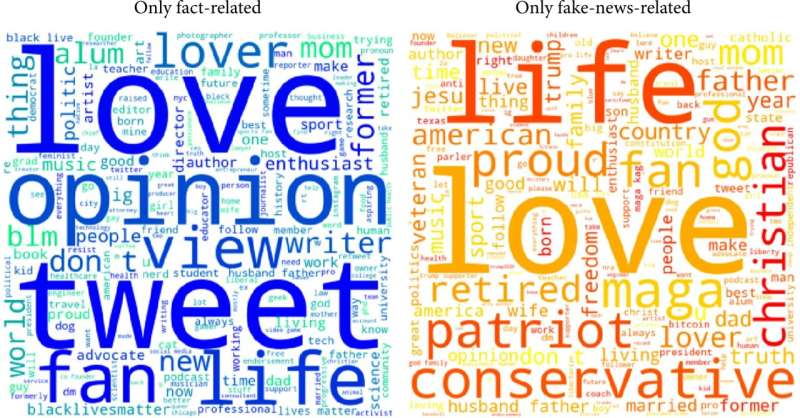True and false claims: Online behaviors behind COVID-19 vaccine uptake

Vaccine uptake constitutes a key barometer as governments lead communities out of the COVID-19 pandemic. Facts and fake news have apparently influenced vaccination willingness. But how valid is this proposition?
Jiebo Luo, a professor with the Department of Computer Science, University of Rochester, has led a study to examine the scale and scope of the influence of misinformation and fact-based news about COVID-19 vaccines on social media platforms on the vaccine uptake.
This study has been published recently in Health Data Science.
The team started with four million Twitter posts from April 19 to June 30, 2021. This start date was set as President Joe Biden had moved up the COVID-19 vaccine eligibility target for all American adults to April 19.
The data processing methods yielded 456,061 fact-related tweets and 26,998 fake-news-related tweets indicating fake news, conspiracy theories, unreliable content, or highly biased news. 10,925 Twitter users were associated with fake news, while 159,283 were linked to fact-based news. The authors also extracted the state-level vaccination numbers from the CDC COVID Data Tracker.
“Seemingly counter-intuitive, the percentage of fact-related users is significantly negatively associated with the vaccination rate,” Luo shares the study result. “A combination of a larger user-level influence and the negative impact of online social endorsement on vaccination intent may account for this paradox. “
However, no significant correlation is found between the percentage of fake-news-related users and the vaccination rate. The researchers also controlled for user-profiles and found Black or African American or other ethnicities, labor forces, and per capita income were negatively associated with vaccine uptake. Meanwhile, gender, Hispanic or Latino, the daily counts of new cases and deaths were not associating factors.
In addition, social capitals were found distinct between Twitter users who posted only fake news and those who shared only fact-based tweets. The exclusive fact-based users were more likely to be verified accounts and have more significant online influence. They had more followers, friends, status, listed memberships, and expressed more favorites. In comparison, the exclusive fake-news users were only one-fifteenth the size of the fact-oriented users with more homogenous opinions.
Source: Read Full Article



